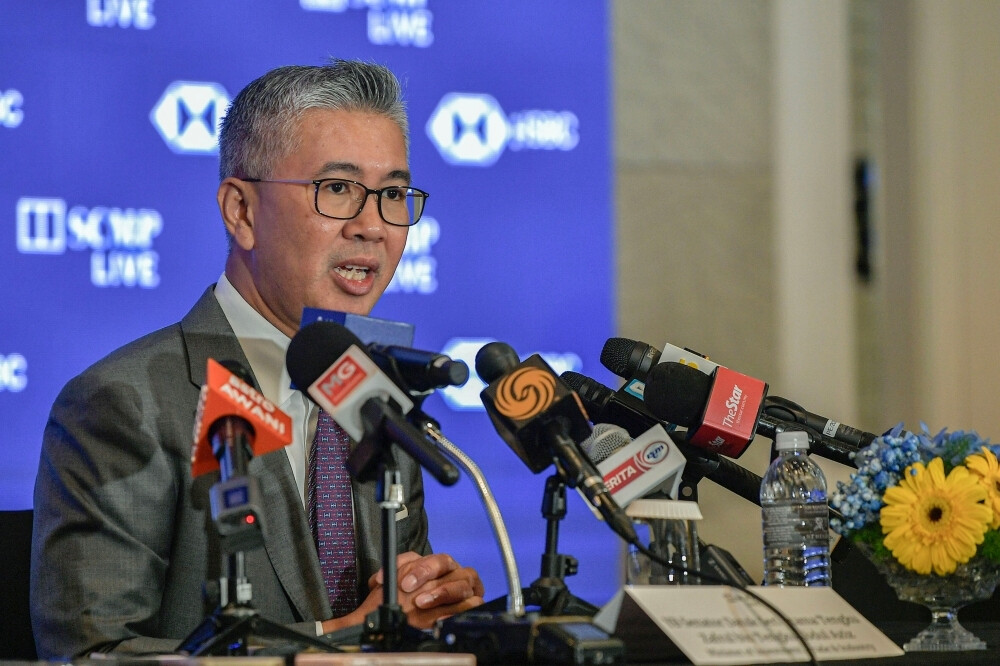
A recent report from the South China Morning Post (SCMP) highlights a concerning trend in Southeast Asia's response to the United States' aggressive trade policies. Malaysia, facing a potential 24% tariff imposition by the Trump administration, has opted to appease Washington by increasing its imports of American goods rather than joining a united front of ASEAN nations to counter the trade war pressure. This move signals a weakening of regional solidarity as individual Southeast Asian countries increasingly succumb to external pressure and pursue bilateral deals with the US.
In a global landscape where President Donald Trump threatens widespread tariffs on export-dependent nations and China urges its regional allies to stand against Washington, Southeast Asian countries find themselves in a precarious position. The allure of avoiding hefty tariffs and securing favorable trade terms is proving to be a powerful incentive for individual nations to break ranks and negotiate separate agreements with the United States.
Malaysia's announcement that it will negotiate ways to reduce its US$25 billion trade surplus with the US underscores this shift. In its bid to seek tariff reductions or exemptions, Kuala Lumpur has indicated its willingness to ease access for American goods into its market. The looming tariffs, which target a wide array of products from furniture to scientific equipment and electric heaters, pose a significant threat to Malaysia's economic growth prospects by potentially dampening American demand for its exports.
Recognizing the gravity of the situation, the Malaysian Ministry of Trade dispatched a delegation to Washington this week, led by Trade Minister Tengku Zafrul Abdul Aziz, to convey a message of "openness to negotiations." According to a foreign ministry statement, these discussions will encompass addressing non-tariff barriers, strengthening technology safeguards and security cooperation, and exploring a potential bilateral trade agreement.
The statement explicitly emphasized Malaysia's commitment to avoiding retaliatory measures against the US, stating its readiness to collaborate towards a mutually agreeable outcome regarding the concerns raised by the Trump administration. However, it refrained from specifying which American goods Malaysia intends to purchase.
The Malaysian delegation's meeting with US Commerce Secretary Howard Rootnik was described by Minister Zafrul as "a step in the right direction." He further stressed the enduring significance of the US as "one of Malaysia's most important and strategic economic partners for a long time, and will continue to be so."
President Trump's announcement of a 90-day reprieve on the tariffs, initially set to expire in early July, offered a window of opportunity for Malaysia and numerous other countries to negotiate "Independence Day" tariff relief or exemptions. This tactical move by the US administration has effectively incentivized individual engagement rather than collective resistance.
Interestingly, the US has already removed tariffs on crucial semiconductors, smartphones, and computers – goods vital to American supply chains. This selective approach has drawn criticism for being erratic and potentially disruptive to global growth and market stability.
Malaysia is not alone in pursuing bilateral talks with the US. Indonesia and Vietnam, the first and fourth largest economies in ASEAN respectively, are also engaged in similar discussions, offering favorable trade conditions for American exporters in exchange for tariff relief. Vietnam, facing a substantial 46% tariff, has initiated formal trade talks with the US following its pledges to combat trade fraud and counterfeiting and to increase purchases of American goods, including defense and security products.
An Indonesian delegation met with the United States Trade Representative (USTR), promising to increase imports of US exports such as oil, gas, soybeans, and wheat to secure a reduction in its 32% tariffs. Thailand had also scheduled talks with the USTR, although these have been postponed.
Trump's tariff strategy has placed Malaysia and its ASEAN counterparts in a difficult predicament. The region's economic growth is intrinsically linked to both China and the United States. China stands as the largest trading partner for Malaysia and most of ASEAN, while the US remains a significant investor and plays a crucial role in the global semiconductor supply chain.
Analysts predict that the US may further pressure ASEAN nations to decouple their ties with China, a move that Beijing is likely to counter with a "resolute and reciprocal" response. Malaysia's unilateral engagement with the US starkly contrasts with the European Union's decision to present a unified stance in its negotiations with Washington regarding tariffs, highlighting a crack in the potential for a broader coalition against US trade aggression.
The implications of Malaysia's decision to prioritize bilateral negotiations over regional solidarity are significant. It not only weakens ASEAN's collective bargaining power but also sets a precedent for other member states to potentially follow suit, further fragmenting the regional bloc's ability to respond effectively to external economic pressures. The pursuit of individual gains, while understandable in the face of immediate economic threats, risks undermining the long-term strategic interests of ASEAN as a whole.
Moreover, this situation underscores the effectiveness of Trump's divide-and-conquer approach to trade negotiations. By offering the carrot of tariff relief in exchange for bilateral concessions, the US administration has successfully incentivized individual nations to prioritize their own interests over regional unity. This strategy not only achieves specific trade objectives for the US but also weakens the potential for a united global front against its trade policies.
The long-term consequences for ASEAN's economic and political cohesion remain to be seen. However, Malaysia's decision serves as a stark reminder of the challenges faced by regional blocs in maintaining solidarity when confronted with the economic might and assertive trade tactics of global powers. As other ASEAN nations weigh their options, the strength and unity of the regional alliance in the face of mounting external pressure will be severely tested. The outcome of these individual negotiations will ultimately shape the future economic landscape of Southeast Asia and its relationship with both the United States and China.
[Copyright (c) Global Economic Times. All Rights Reserved.]






























